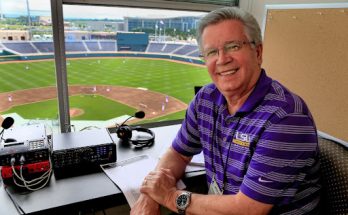In a city built on diversity, history, and resilience, the Los Angeles Dodgers have long stood as more than just a baseball team—they’ve been a symbol of community, unity, and hope. Now, in a move that reaffirms their legacy of social responsibility and civic leadership, the Dodgers are preparing to launch an ambitious new initiative designed to assist, empower, and uplift immigrant communities across the greater Los Angeles area. The announcement, which has sent waves of optimism through fans and local organizations alike, represents a meaningful expansion of the club’s off-field impact. With this plan, the Dodgers are not just stepping up to the plate—they’re swinging for something far bigger than baseball.
The Dodgers’ relationship with the immigrant fabric of Los Angeles isn’t new; it’s deeply woven into the very DNA of the franchise. From their historic move west from Brooklyn in 1958 to their decades of community engagement, the organization has long embraced the city’s multicultural roots. For generations, immigrant families have filled the stands at Dodger Stadium, their cheers echoing the dreams they carried from lands far beyond. The team has now turned its attention even more intently toward those very families, recognizing their invaluable role in shaping the city and their ongoing struggle to access equal resources, support, and representation.
The new initiative includes a multifaceted approach focused on education, legal support, economic empowerment, and cultural recognition. Among the most powerful components is the commitment to fund legal aid services for immigrants facing deportation or navigating the complex U.S. immigration system. The Dodgers will be partnering with nonprofit organizations already doing this work on the ground, including immigrant legal defense funds and advocacy groups that specialize in family reunification and DACA renewals. This step alone could impact thousands of lives, ensuring that families remain together and individuals are given a fair chance at due process.
But legal aid is only one aspect of the initiative. The Dodgers are also investing heavily in community-based educational programs, including English language classes, workforce readiness training, and scholarship funds for undocumented students and children of immigrants. These efforts, the team believes, are not simply acts of charity—they are investments in the future leaders, thinkers, and innovators of Los Angeles. For a city that draws strength from its global roots, these programs provide a bridge between potential and opportunity.
Dodger Stadium, already a landmark in Los Angeles, will serve as a physical and symbolic hub of this outreach. Select non-game days will be reserved for resource fairs offering everything from health screenings to legal consultations, job placement services, and cultural celebrations. Additionally, the team plans to host a new “Immigrant Heritage Night” at the stadium, expanding on its popular theme nights to spotlight the vast array of cultures and communities that make L.A. one of the most vibrant cities in the world.
The response has already been overwhelmingly positive, with city officials, advocacy organizations, and civic leaders praising the Dodgers for using their platform in such a powerful and intentional way. In a statement, one Los Angeles council member called the effort “a game-changer for our city’s most vulnerable families.” Another praised the Dodgers for “putting muscle behind their message,” noting that many organizations speak of inclusion but rarely follow through with tangible, impactful action.
The team’s front office, led by President and CEO Stan Kasten, made it clear that this isn’t a temporary PR move but a long-term commitment. “The Dodgers have always believed in the power of community,” Kasten said. “We understand the role immigrants play in our city’s story. This initiative is about recognizing that truth and showing up in a real, lasting way.” The franchise’s ownership group, including Magic Johnson and Guggenheim Baseball Management, echoed that sentiment, emphasizing that the mission is rooted in respect, partnership, and progress.
Players, too, have expressed their support, with several expected to be involved directly in community outreach efforts. Some, like longtime Dodger Julio Urías, who hails from Mexico, have spoken in heartfelt terms about the importance of the immigrant journey and what it means to represent those who work tirelessly, often in the shadows, to create better lives for their families. “This city gave me a dream,” Urías said. “I want every kid, no matter where they’re from, to know that they belong here—that they can dream big, too.”
The announcement comes at a pivotal moment in America, where conversations about immigration are often clouded by politics and polarization. By making a bold, unambiguous statement of support for immigrant communities, the Dodgers are signaling that compassion, inclusion, and justice should never be partisan issues. Their plan reflects not only a moral stance but a broader recognition that the strength of Los Angeles lies in its diversity.
What makes this initiative especially powerful is its grassroots focus. Rather than implementing a top-down solution, the Dodgers are listening to community leaders, partnering with local experts, and ensuring that resources are delivered directly where they are needed most. From Korean-American enclaves in Koreatown to Central American families in MacArthur Park to Filipino nurses and Iranian small business owners across the San Fernando Valley, this initiative is about reflecting the full mosaic of L.A.
At a recent community meeting held at a local youth center, Dodgers representatives outlined some of the early pilot programs and answered questions from residents. One mother from El Salvador tearfully thanked the team for finally “seeing us.” Her son, a high school senior with dreams of college, now has a clearer path forward thanks to the scholarship fund set to launch this fall. Another father, an undocumented worker who’s lived in Los Angeles for over two decades, said the legal aid support could be life-changing. “I’ve paid taxes, raised my kids, worked hard every day. I just want to be seen as human.”
The Dodgers’ commitment to immigrants isn’t just about providing services—it’s about telling a new story. A story where immigrants aren’t marginalized, silenced, or criminalized, but recognized as integral to the very heartbeat of Los Angeles. In every swing of the bat, every roaring cheer, and every soaring fly ball under the Chavez Ravine sky, the Dodgers are making it clear: they stand with their community, all of it.
Sports franchises across the country will no doubt be watching closely. In an era when professional teams are increasingly expected to play roles in their communities that extend far beyond the confines of their stadiums, the Dodgers are setting a powerful example. It’s a challenge to others: use your platform, take a stand, and give back meaningfully.
The initiative will be formally rolled out later this summer with a community festival at Dodger Stadium featuring live music, food from immigrant-owned businesses, cultural showcases, and free legal and medical clinics. It will be more than a celebration—it will be a call to action, a rallying cry for unity and justice, and a powerful reminder of what’s possible when a team takes the field for something greater than the scoreboard.
For now, though, the message is already ringing loud and clear throughout Los Angeles. The Dodgers aren’t just talking the talk—they’re walking it. Or maybe more accurately, they’re running the bases with purpose, leading with heart, and proving once again that in this city, the true champions are those who lift others as they rise.



